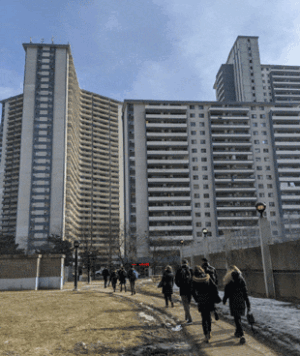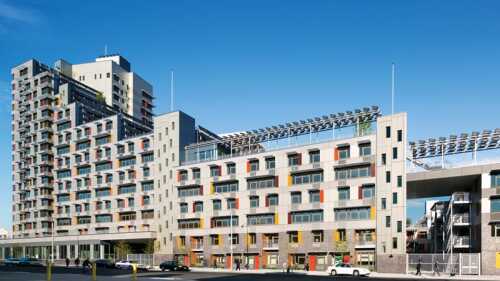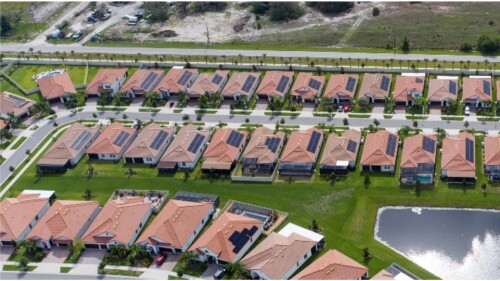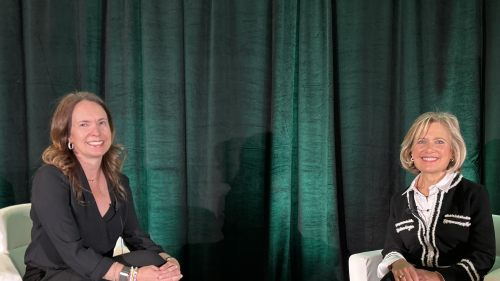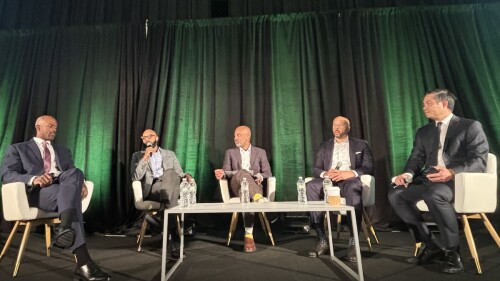The city of Toronto should take action and develop a long-term housing strategy to retrofit more than 800 private rental towers to create sustainable buildings, according to a report released by ULI Advisory Services.
The report is based on recommendations from an Advisory Services panel of sustainability and affordable housing experts convened last February on how the city of Toronto can retrofit the aging buildings to reduce their carbon emissions and be resilient to climate risks while maintaining affordable rents.
The panel was sponsored by the city of Toronto in partnership with the Tower Renewal Partnership and with generous support from the ULI Foundation.
ULI members can access this report on Knowledge Finder.
The panel’s visit, which took place February 23–28, 2020, featured site tours to some of the housing towers as well as interviews with a variety of stakeholders in the community. Initial recommendations were made at the time of the panel visit that have now been followed up in more detail in a comprehensive report.
The panel recommended that the city:
- Own the issue: Currently, the Tower Renewal Program has been located within various departments of the Toronto city government. The panel recommended that the program be elevated to reside in the city manager’s office with a clear point person to execute the program.
- Develop a long-term strategy: The panel strongly affirmed that the towers must not be Toronto’s de facto affordable housing strategy. As part of a comprehensive plan, the panel emphasized the importance of removing barriers to new rental apartment development and construction by making the approval process faster and more predictable and encouraging the development of mid-rise buildings focused on a more midmarket demographic.
- Build community resilience: The panel recognized strong opportunities to capitalize on the spaces in between the towers by animating disused spaces, and updating the “tower in the park” concept to be relevant to current lifestyle needs and trends. Specifically, the panel recommended the creation of tower enhancement districts (TEDs), a form of building owners association that would connect local stakeholders and take the lead in accelerating positive change through public realm improvements, soft programming, small business development, and emergency preparedness.
- Balance priorities and accelerate uptake: Panelists identified that it was possible for tower renewal to achieve affordability, sustainability, and resilience, but the public and private sectors would have to partner to make it happen. In order to ensure safety and create a path for the future, the panel recommended policies, including owner assurance of building safety, a public energy benchmarking program for transparency and to track progress, and mandatory audits.
- Take action now: The panel encouraged aggressive goals to create a pilot program for 10 private building owners to build industry capacity and demonstrate what is possible. To catalyze this action, the panel recommended that the city create a competitive grant program for early adopters who commit to high-performance/resilience goals and are willing to share lessons learned, to create a roadmap for how to cost-effectively execute deep retrofits within the private sector.
The panel was led by ULI member Jim Heid, founder of UrbanGreen, based in Healdsburg, California. “This Advisory Services panel was a complex and timely endeavor,” he said. “The role these towers play in housing so many of the city’s moderate-income families—and the need to assure they are safe and healthy places to live—means renewal is a necessity, not an option. Like so many other complicated legacy issues, success will require strong and steady leadership, a long-term view, and the commitment of significant public and private financial resources.”
Heid was joined on the panel by Brad Dockser, chief executive officer, Green Generation, Bethesda, Maryland; Billy Grayson, executive director, Center for Sustainability and Economic Performance, Urban Land Institute, Washington, D.C.; Purnima Kapur, former executive director, New York City Department of City Planning and adjunct lecturer at Columbia University’s Graduate School of Planning and Architecture, New York; Bill Lashbrook, retired former senior vice president, PNC Real Estate, Hopewell, New Jersey; Laura London, associate director, real estate development, Arlington Partnership for Affordable Housing, Arlington County, Virginia; and Elizabeth Propp, senior vice president, investments and acquisitions, Community Preservation Corporation, New York.
For more than 70 years, the Institute’s Advisory Services program has assembled ULI members who are experts in the fields of real estate development and land use to advise communities facing complex urban development challenges.

